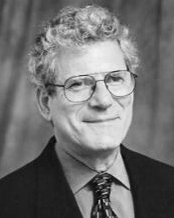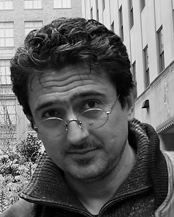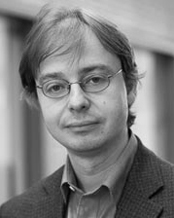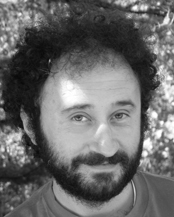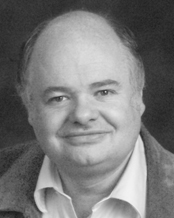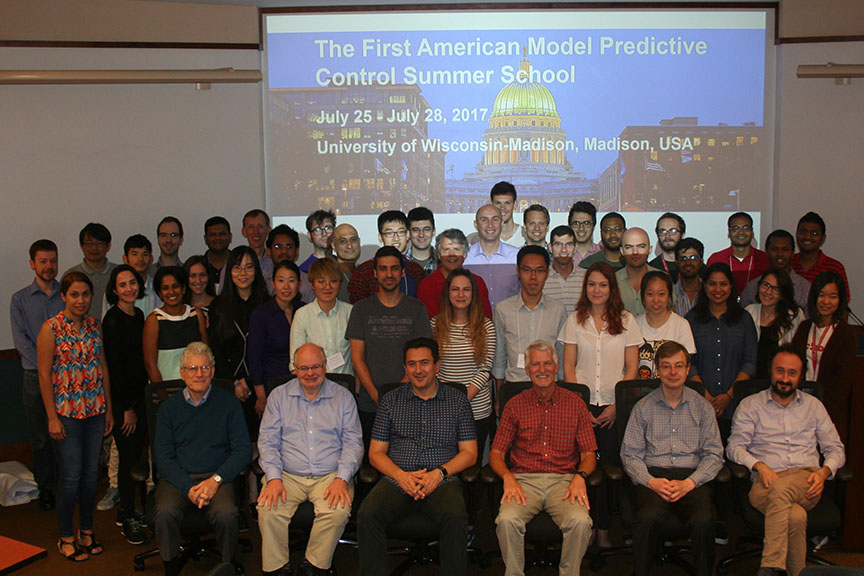 |
| The First American Model Predictive Control Summer School; attendees and instructors. |
Organizers
Saša V. Raković
James B. Rawlings
Ilya V. Kolmanovsky
Model Predictive Control
Model Predictive Control (MPC) has established itself as a dominant advanced control technology across many industries due to its exceptional ability to explicitly account for control objectives, directly handle static and dynamic constraints and systematically optimize performance. MPC provides, via an iterative open loop optimal control implemented by repetitive online optimization, a feedback control that meets design specifications and maximally utilizes system capabilities. Not surprisingly, MPC has also become a highly vibrant and interdisciplinary branch of mathematical control theory that fuses and synergistically treats control–theoretic issues (such as stability, performance, robustness, etc.) for constrained systems with the optimization theory and numerical computations.
In fact, MPC has become both a leading industrial technology for advanced control, as well as an academic discipline for graduate level research. On the industrial applications side, the scope of the technology has rapidly increased during the last 30 years from its roots in process control to encompassing many industrial sectors including: aerospace, energy systems, automotive, robotic systems, etc. During the same time period, the scope of MPC research has also widened rapidly starting from its original nominal MPC formulation, to open new areas including: robust MPC. stochastic MPC, economic MPC, etc. Moreover because of its use in real time applications, the computational aspects of the many forms of MPC formulations have been the focus of intense research efforts resulting in improved in both online and offline versions of MPC, and underlying optimization, algorithms.
Overview
The summer school delivers a carefully crafted overview of the theoretical fundamentals of MPC, and it provides access to, and motivates the development of, freely-available and state-of-the-art numerical software for implementing the advanced MPC methods on difficult and challenging examples and industrial applications. The summer school initiative brings leading researchers and practitioners together to provide state-of-the-art overviews and tutorials on the latest MPC research and applications.
The summer school runs for four days during one-week, thereby making the class available to a much larger numbers of graduate students. The main topics of the summer school are lectured by the seven leading researchers in the different MPC topics, which exposes the graduate students to more expertise than is available in a single semester university course offered by a single instructor. The summer school also anticipates inclusion of class mini-projects that enable all attendees to present, and discuss, problems of direct interest to their research, and also to receive feedback from a set of instructors with valuable expertise in all areas of MPC research.
Themes
|
MPC Essentials This segment of the workshop is an introduction to MPC. It presents a brief, and biased, history of MPC along with some intuition that helps explain how and why MPC works. This is followed by the essential details required by a simple implementation of MPC. These include the problem formulation, implementation details including computation, and the basic requirements to guarantee stability of the closed-loop system. Indications of where more sophisticated formulations and analyses are needed are also presented. |
|---|---|
James B. Rawlings |
MPC with output feedback, disturbance models, and zero offset Given the overview in MPC essentials covering tracking the origin with state feedback, the next part of the class addresses several extensions required in industrial applications. 1. Designing MPC for output feedback and noisy measurements 2. Designing MPC to reject nonzero disturbances and adding integral control to MPC. |
Saša V. Raković |
Robust MPC |
|
Stochastic MPC |
David Angeli |
Economic MPC In this module we will be looking at so called Economic Model Predictive Control. This is a technique for letting profitability directly drive the formulation of the optimization problem adopted within the model predictive controller. It avoids, in particular, the preliminary step of translating economic decisions and objectives into suitably designed set-points to be passed in real time to a standard Tracking Model Predictive Control. Advantages and disadvantages of the approach will be highlighted and mplications of such a direct formulation on the dynamics of the closed loop system investigated. A detailed discussion of the so called "terminal ingredients" and how these can be chosen or designed in order to achieve specific objectives in closed-loop (such as stability, recursive feasibility or asymptotic performance) will be presented. |
|
Optimization for MPC |
|
Industrial Applications of MPC In this part of the course the focus is on MPC applications in industry, with a particular emphasis on the process industries where some of the first MPC applications took place. A brief history of commercially significant MPC algorithms will be presented, along with an analysis of key features that led to their success. This will be followed by a detailed discussion of a representative fired heater application, including how to estimate potential benefits, steps required to develop the system model, how to develop initial estimator and controller tuning, and steps required to successfully commission and maintain the application. The presentation will conclude with a vision of the future of MPC applications in industry and a summary of remaining research challenges. |
Primary Objectives
The major goals of this summer school are to provide a comprehensive tutorial of both fundamental and advanced aspects of MPC and present a unified treatment of its conceptual, computational and applied aspects. More specifically, the summer school delivers a compact understanding of basic principles of MPC as well as comprehensive theoretical foundation underpinning several major advanced MPC methodologies including classical MPC, robust MPC, stochastic MPC, and economic MPC. The summer school also covers the numerical implementation of these advanced MPC design methods via advanced and real-time optimization techniques, and it also overviews real-life industrial applications of MPC. Thus, the summer school synergistically fuses theoretical, computational and applications-driven aspects of MPC and, consequently, furnishes a unique blend of advanced control synthesis and analysis methods.
Attendee Benefits
The summer school concept brings together seven leading researchers and forty graduate students and practitioners for an intensive four days learning experience that showcases the latest research results, industrial applications, and software for MPC. The themes of the summer school are presented by the seven leading researchers in the respective fields, while the MPC concepts with state-of-the-art and freely available software. In turn, the attendees can take home with them the computational tools required for implementation of MPC on challenging applications. The careful modular design and modest four days time investment makes the summer school attractive to a much wider audience of scientists, engineers, applied mathematicians, and practitioners. The workshop provides, for graduate students and junior researchers, a comprehensive exposure to advanced theory and design of MPC for constrained systems subject to uncertainty. On the other hand,the workshop delivers a systematic framework for senior researchers and engineers working on real-life industrial problems where constraints and uncertainty play a key role. Thus, this four days event will stimulate the creation of a specialized network of researchers focused on further advances in this highly important research field. The summer school will also provide a critical assessment of the current state of affairs in, and it will identify relevant future research directions for, MPC in terms of theory, computations and applications.
Class Mini-Projects and Software
Short project presentation session are anticipated for the last afternoon of the summer school. This session will enable all attending students to present problems of direct interest to their PhD research. Students will be paired up in small teams and make 10 minute project presentations. Students will be encouraged to formulate relevant models from their PhD research to bring with them to the summer school. The project session enables other students to learn about cross-disciplinary applications. The presenters will receive feedback from a set of instructors with valuable expertise in all areas of MPC research.
Before the summer school starts, a freely-available high-level software for solving MPC problems will be distributed. The software will be based on CasADi, and will be callable from Octave/Matlab. Instruction in using the software tools provide an important benefit for class participants enabling them to solve realistic, cutting-edge MPC examples with modest time and programming investment. The access to state-of-the-art optimization and simulation tools, enables the students to learn a software environment that they can take with them back to their universities and use in their future research. By focusing on freely-available software, researchers have access to the computational tools without the need to pay expensive commercial license fees.
Prerequisite and Learning Outcome
The summer school is open to graduate students, national laboratory scientists, and industrial researchers interested in learning about model predictive control (MPC). A first graduate course in linear systems theory is the assumed mathematical and systems engineering background. Second semester PhD students working in any control field would have the appropriate background. Students should be familiar with Octave/Matlab programming environments. Familiarity with Python and CasADi would be helpful but is not essential.
At the conclusion of the summer schools attendees will have learned the following skills.
- Design a complete model predictive controller for a small-scale system of interest from one’s own research.
- Be able to apply state-of-the-art numerical software to implement a model predictive controller in real time.
- Understand how to apply mathematical analysis methods to establish both open-loop and closed-loop properties of MPC systems.
- Understand the effects of model uncertainty in a feedback system, and apply MPC design methods to overcome uncertainty.
- Understand how to design an MPC controller to optimize a system’s economic performance.
- Be able to read the model predictive control research literature.
Registration
Amounts for a partial travel expense reimbursement and a modest registration fee will be determined after final approval of NSF funding. The registration fee will cover the costs of local expenses, including the banquet, beer, wine and non-alcoholic drinks, media and room costs for the course.
